Booking car rental in Johannesburg? Jozi is the financial heart of South Africa, with millions of residents keeping its lifeblood pumping throughout Gauteng and beyond. It’s rich in history, culture, and heritage, preserving important vestiges of South Africa’s past while building its future.
At Drive South Africa, we want travellers to get the full Jozi experience. That’s why we offer car rental in Johannesburg, giving you the opportunity to explore the City of Gold at your own pace. We’ve put together a list of 10 interesting facts about Johannesburg that will get you excited ahead of your visit. Read on to learn something new!
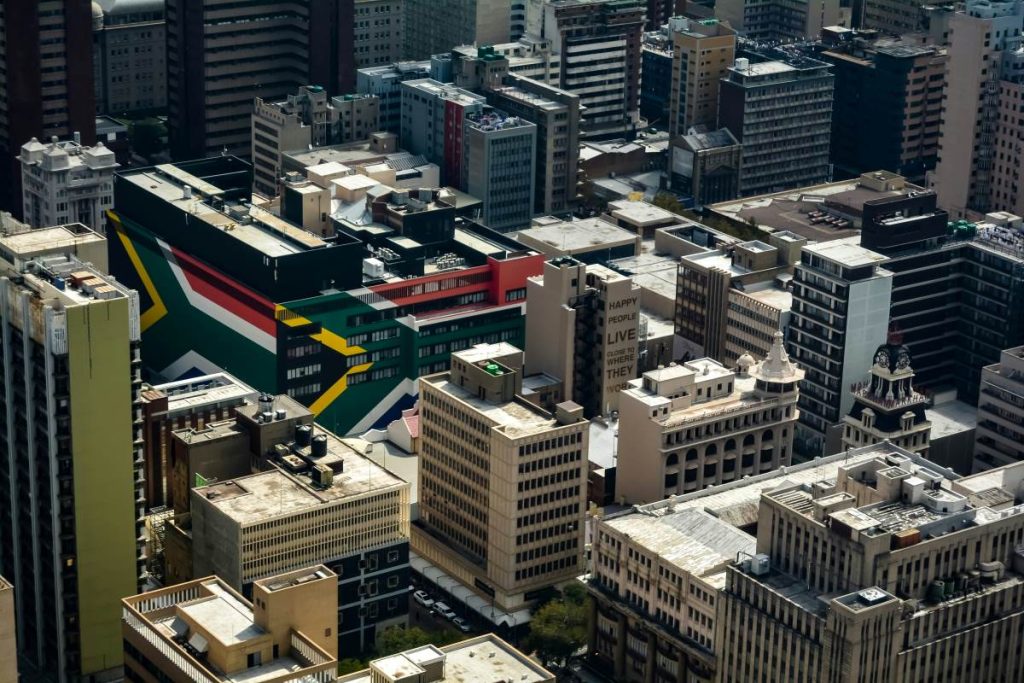
An aerial view of Jozi
In just under a century and a half, Johannesburg has grown into the largest city in southern Africa. It’s also one of the 100 largest urban areas in the world and is the economic powerhouse of South Africa. In fact, the Globalization and World Cities Research Network considers it an “alpha global city”, meaning it’s a primary node in the global economic network.
The metro area spans more than 1,642.6 km2 and is home to more than eight million people, generating around 16% of South Africa’s total Gross Domestic Product (GDP). Because it’s that big and imposing, we definitely suggest car rental in Johannesburg.
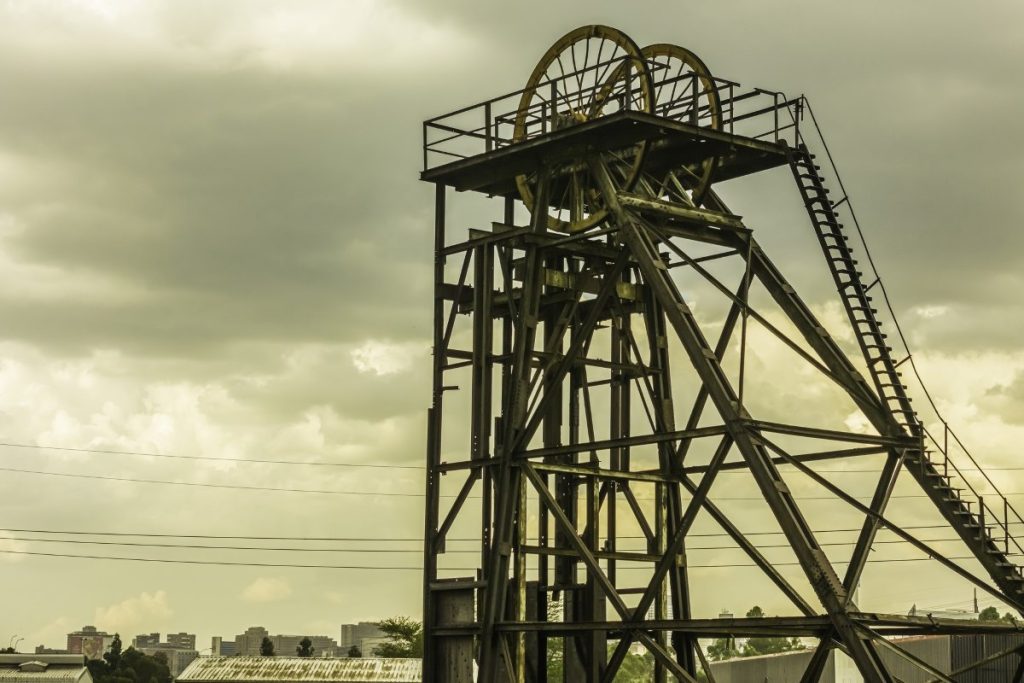
Remnants of an old mining rig in Johannesburg
Ever wondered why people call Johannesburg eGoli or the City of Gold? The first inhabitants of the region were indigenous San peoples, followed by Sotho and Tswana peoples, but its history as a city began with the arrival of gold prospectors in the late 1880s. They discovered rich seams of the precious metal underneath the Witwatersrand, sparking a gold rush that attracted tens of thousands of people to the new settlement.
Although people don’t mine gold in the city limits any longer, many major mining companies still maintain their headquarters in Johannesburg.
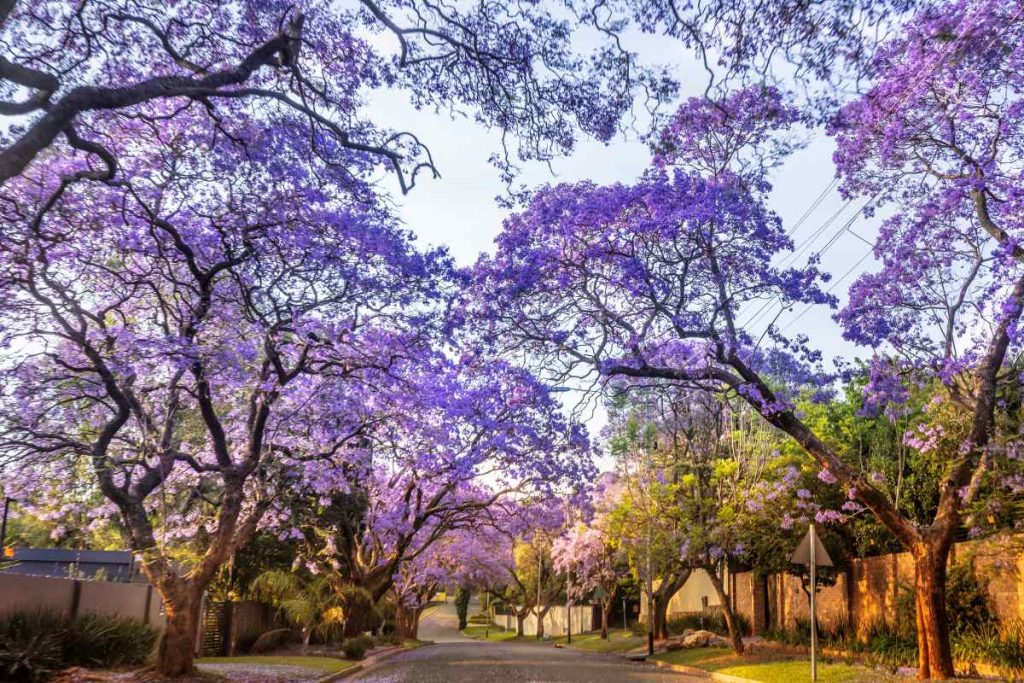
Jacaranda trees in bloom
In addition to the numerous parks and nature reserves throughout the city, Johannesburg’s suburbs are packed with greenery. While not technically a “manmade forest”, the more than 10 million trees throughout Jozi make it look like a tropical rainforest on satellite imagery. Other cities like Rio de Janeiro in Brazil and a mammoth “Green Wall” in China probably have bigger manmade forests, but Johannesburg is certainly a top contender.
Notable trees include the iconic jacarandas, which line Johannesburg streets with bright purple blossoms every October. When you rent a car in Johannesburg, make sure you make time to see this incredible annual phenomenon.
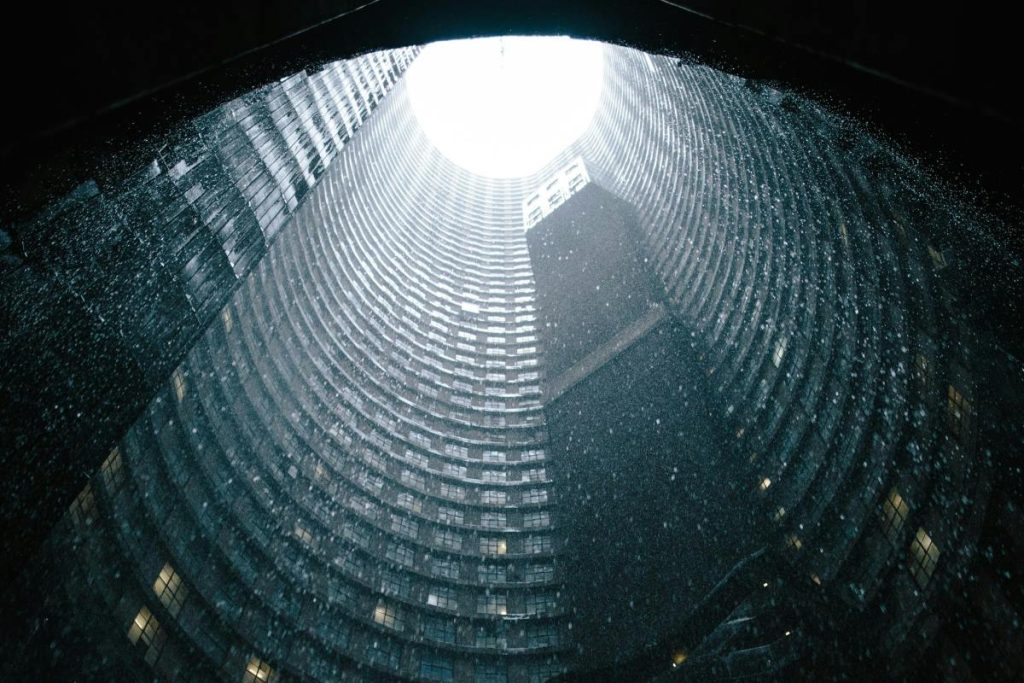
The hollow interior of Ponte City
As one of the first metropolises in Africa, Johannesburg has a long history of record-breaking skyscrapers. From 1973 until 2019, the Carlton Centre in the CBD was the tallest building in Africa, reaching 223 m in height. It was surpassed by The Leonardo in Sandton in 2019, which has 55 floors and stands at 234 m high. Today, the Iconic Tower in Cairo, Egypt is the tallest building on the continent.
The Ponte City building in Hillbrow is another notable contender. It’s completely cylindrical with an open centre that rises above a rocky floor and the top is covered by the largest sign in the southern hemisphere. You can even go on a tour of the tower and learn all about Hillbrow’s history and that of Ponte City itself.
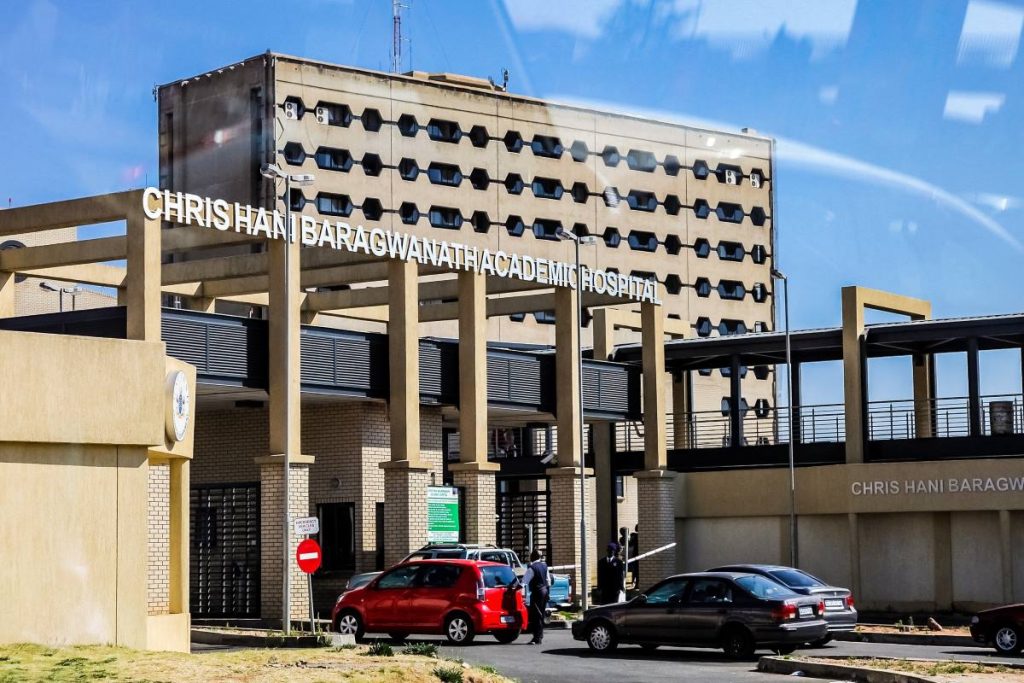
The entrance to Africa’s largest hospital
The Chris Hani-Baragwanath Hospital in Soweto is the largest hospital in Africa and the third-largest in the entire world. At peak capacity, it has 3,200 beds and more than 6,700 staff members. That means more than 150,000 inpatient cases and 500,000 outpatient cases come through its doors each year.
The St John Eye Hospital takes care of over 50,000 of those patients, while the Maternity Hospital cares for 60,000 mothers and babies on an annual basis. It’s also an important teaching hospital for the University of the Witwatersrand (Wits) Medical School.
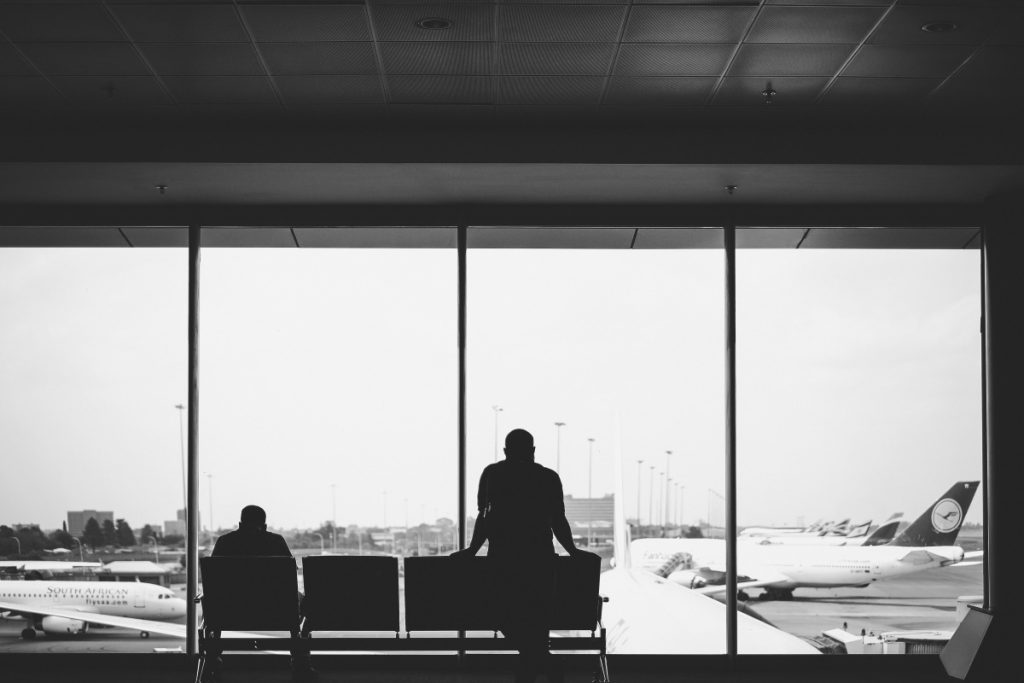
We can arrange car rental in Johannesburg at OR Tambo International Airport
Johannesburg’s OR Tambo International Airport serves an estimated 28 million passengers every year, making it the busiest air hub on the continent. It experienced a major expansion ahead of the 2010 FIFA World Cup and today it services air routes to all corners of the globe.
It has six terminals in total, dozens of retail stores and restaurants, and a Gautrain station that connects it to central Johannesburg and Pretoria. It was named in honour of Oliver Reginald Tambo, a struggle hero and anti-apartheid activist who was president of the African National Congress from 1967 to 1991.
With Drive South Africa, you can rent a car in Johannesburg at OR Tambo International Airport, giving you the freedom explore as soon as you land.
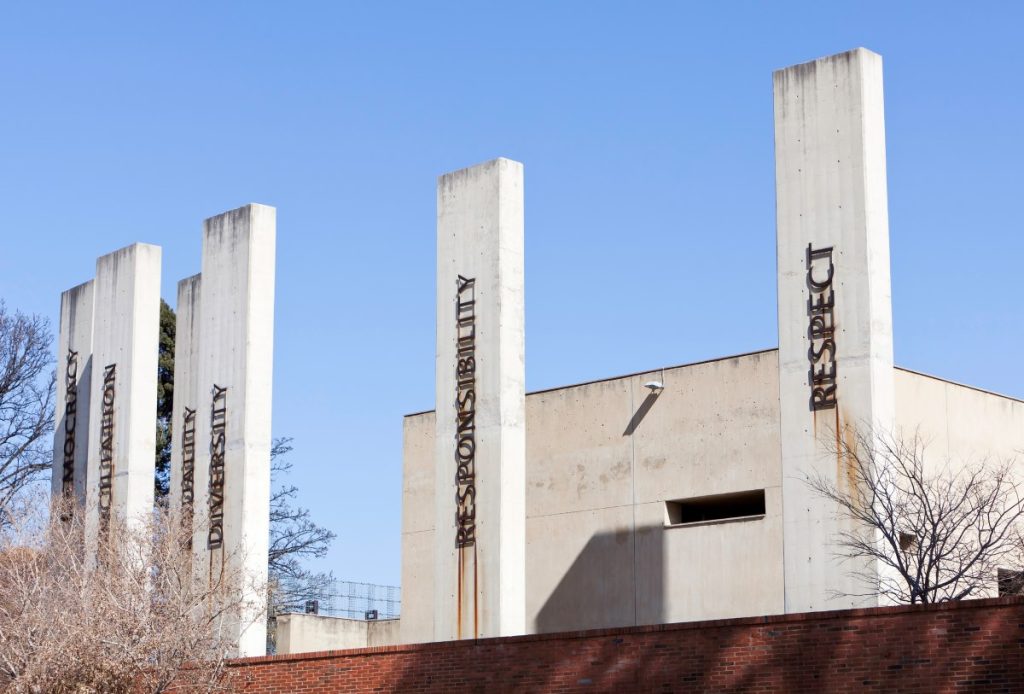
The Apartheid Museum
Since 2001, the Apartheid Museum in Ormonde has catalogued the horrific apartheid history of South Africa. Today, it stands as an important reminder of the past and a warning to never repeat the atrocities experienced by non-white South Africans under the apartheid government.
The permanent exhibitions “trace the country’s footsteps from these dark days of bondage to a place of healing founded on the principles of a democracy”. The museum also hosts exhibitions dedicated to Nelson Mandela and Archbishop Emeritus Desmond Tutu, as well as a range of temporary exhibitions.
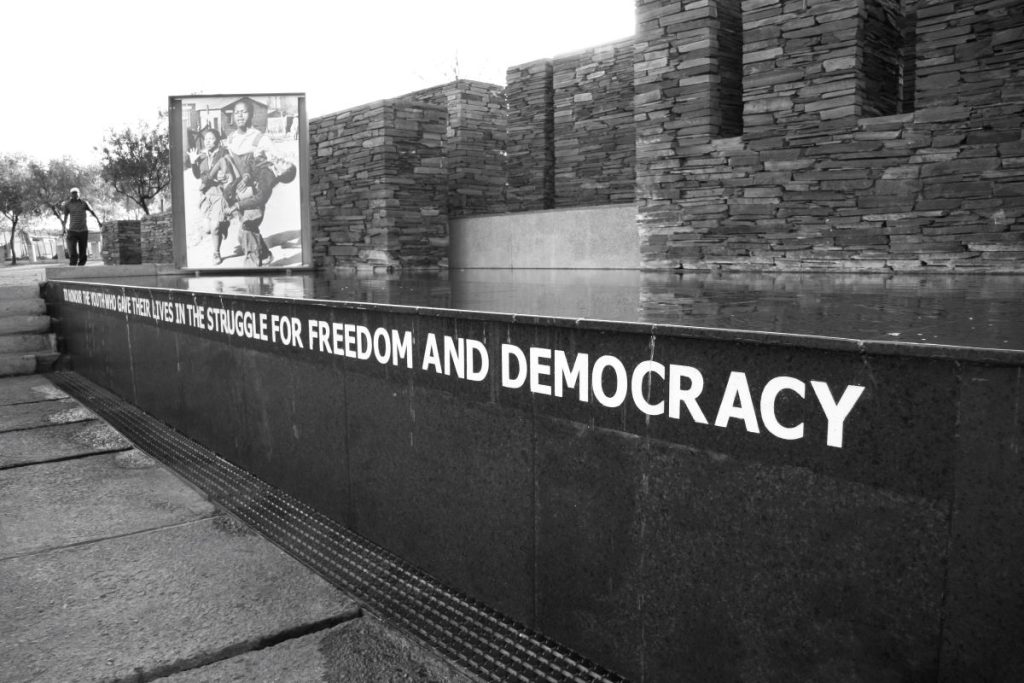
The Hector Pietersen Memorial
On 16 June 1976, up to 20,000 schoolchildren took to the streets of Soweto to protest the introduction of Afrikaans as the medium of instruction in black schools. Apartheid police responded with abhorrent brutality, killing at least 176 children and injuring countless more. Today, South Africans commemorate their bravery and sacrifice on Youth Day every 16 June.
The atrocity sparked renewed outrage against the apartheid government. It was an unprecedented challenge to the regime and inspired similar protests in other cities. Together, these remarkable young people forced the government into a crisis and brought yet more global attention to the oppression of people of colour in South Africa.
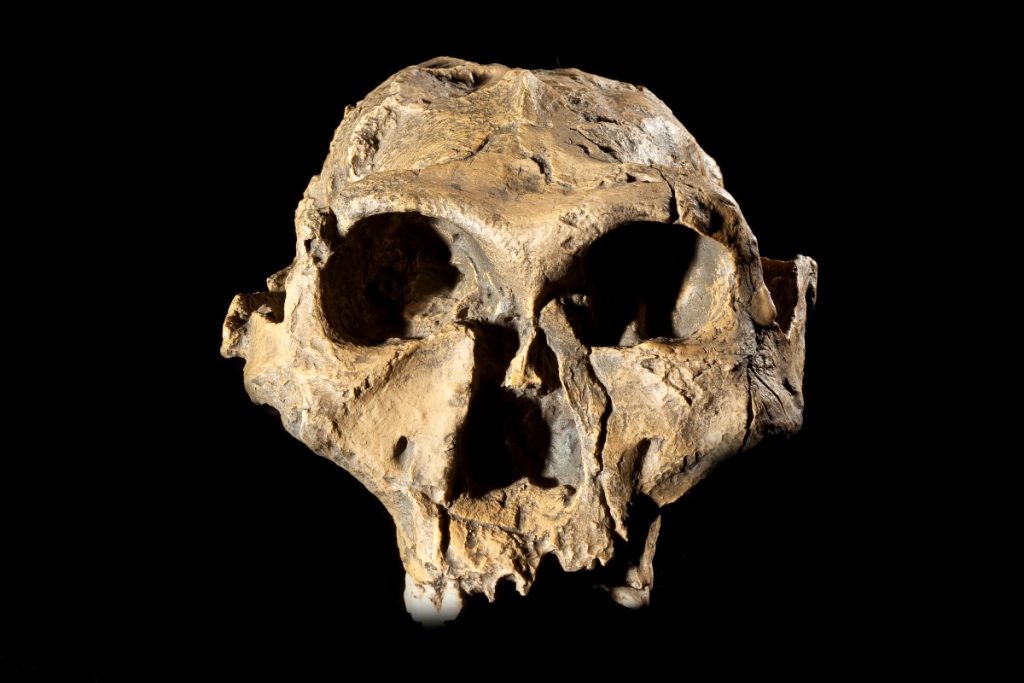
A hominid skull from Sterkfontein Caves
The Cradle of Humankind (Maropeng) near Johannesburg is one of the most important paleoanthropological sites in the world. Since 1935, archaeologists and paleontologists have discovered nearly half of the world’s total early hominid fossils, making it the site of the largest concentration of these remains anywhere on the planet. In fact, the Sterkfontein Caves produced more than a third of early human fossils ever discovered before 2010.
In 2013, researchers discovered an entirely new extinct species of ancient human in the Rising Star Cave system. They named it Homo naledi, with naledi meaning “star” in Sotho. Some researchers believe that it was the first species to bury its dead.
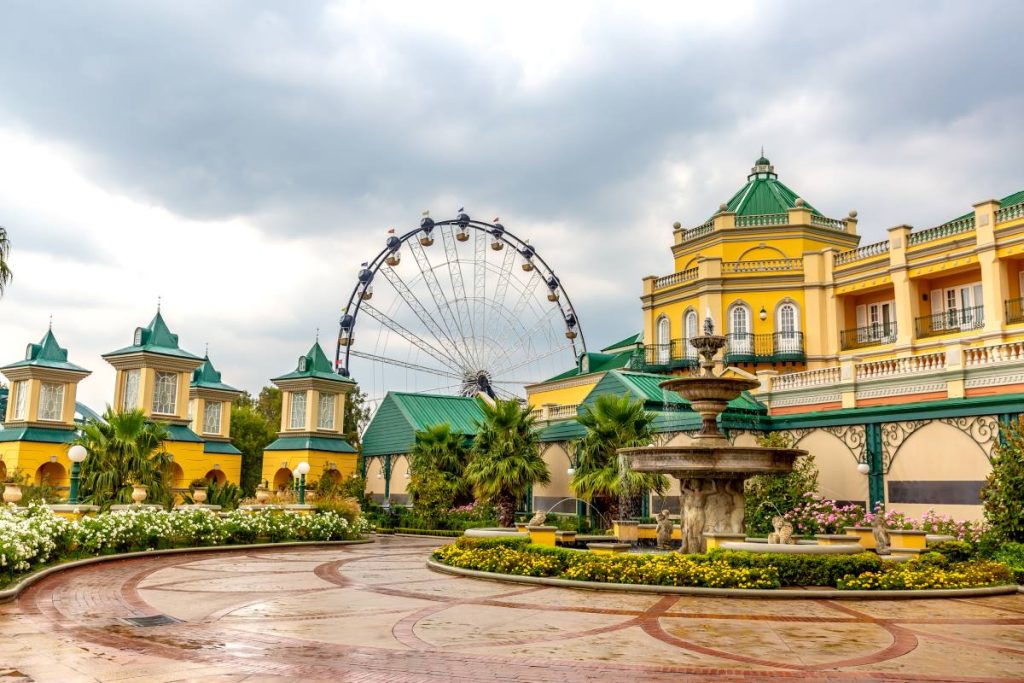
Gold Reef City, one of Johannesburg’s most popular attractions
No rollercoaster in the world generates as much g-force as Gold Reef City’s Tower of Terror. An elevator lifts you high up above onlookers before plunging you into a vertical drop, where you can experience up to 6.3 Gs. It’s a 50 m drop, but it goes by in a flash thanks to the Tower of Terror’s 100 km/h top speed. If you’re not careful, you’ll walk off the ride with a mild case of whiplash.
Other notable rides at Gold Reef City include the Golden Loop, Jozi Express, and The Anaconda, the only inverted Giovanola rollercoaster in the world.
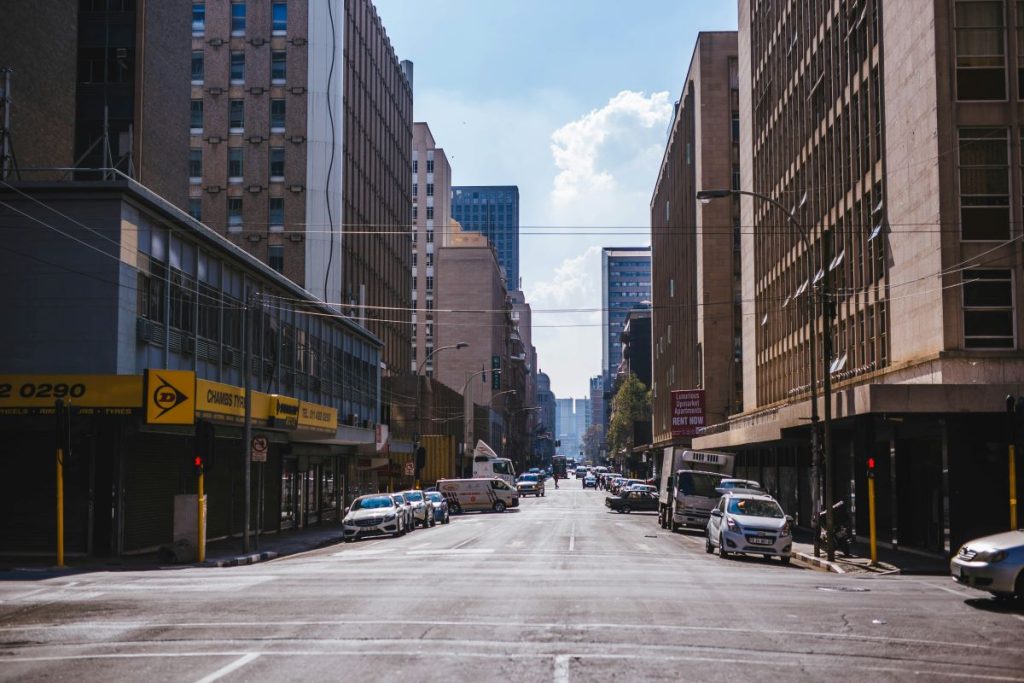
A quiet street in the Johannesburg CBD
For most travellers to South Africa, public transport is neither reliable nor convenient. Instead, we recommend car rental in Johannesburg as the ultimate way to make the most of every second in the city. When you’re done exploring the city limits, you can head out towards nearby attractions like Hartebeestpoort, Maropeng, or even the Kruger National Park if you’re interested in a self-drive safari.
At Drive South Africa, we also offer car rental in Cape Town, Durban, and other major centres across the country. In fact, we offer car hire options in Namibia and Botswana, too. If you plan on going off road, speak to us about 4×4 rental in southern Africa.